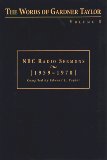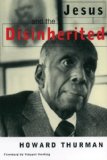Author: Sherman Haywood Cox II
Finding the History of the Text
Ok, up to this point we have only used the Bible. We have not looked in any Bible commentaries or Bible Dictionaries. Now we want to go to these resources to find out what was going on when the text was written and why the text was written.
To understand the history of the text, we need to answer three questions as completely as possible. The first of these questions is: Who is writing the Text? The second question is: Who is reading the text? The final question is, Why was the text written?
Finding the History of the Text Read MoreAudio 28 – Preaching Without Notes not a Brain Dump
Preaching without notes is not a brain dump.
Audio 28 – Preaching Without Notes not a Brain Dump Read MoreDo You Have Power in Your Sermons?
The Apostle Paul wrote that the Gospel was the Power of God unto Salvation. (Romans 1:16) As I contemplate this scripture, I come to the question, is there power in my sermons? If I am preaching the Gospel, then there must be power in them. Power to break strongholds, the power to change lives, the power to bring salvation to the weak, the power to break addictions, the power to bring good out of evil. The power to change structures of evil.
Telling us What’s Wrong
Do You Have Power in Your Sermons? Read More
A Healthy Fear of Preaching – Do you Have It?
As a teacher of preachers, I often see many people who want to preach in my life. Look in any congregation and you will find many preachers who have never had a community of believers validate their internal calling. These people sometimes think that preaching is simply about pounding on members with Biblical truth, belly-aching about some wrong, lecturing on a religious subject, or simply getting folks to shout and praise us.
A Healthy Fear of Preaching – Do you Have It? Read More
Preaching from a Different Angle
 Gardner Taylor preaches a sermon entitled “A Cry in
Gardner Taylor preaches a sermon entitled “A Cry in

Who is Jesus Today?
I was cleaning up another blog and thought this post might be of interest to SoulPreaching.Com readers….
Someone on a blog that has been discontinued asked an interesting question about Jesus, “Who would Jesus be today?” The answer given was a little unsettling to me, you can read it in part here:
Analyzing and Planning Your Own Preaching
Many of us have had the feeling, is my preaching going anywhere? Or maybe you are thinking, “Haven’t I preached this same sermon last month.” I know exactly where you are coming from. And what you need to do is engage in some sermon planning. In this planning, you should do a few things.
Ask Help from God
Analyzing and Planning Your Own Preaching Read More
Four Disjointed Points is not a Sermon
One of the most important rules for preachers is to have one major point. Now if you preach the three points and a poem, what this means is that each of your points should be connected in some way to the main point. If you preach a narrative, it means that you have a major point in mind as you preach the sermon. That way, the people can remember the sermon.
Sermon not Biblically-Derived
Four Disjointed Points is not a Sermon Read More
Methods for Preaching Without Notes – Memorize Nothing
We have talked about this method on a few times. Some might call this extemporaneous preaching in that the preacher does not necessarily know what will be preached or how. The preacher prepares by immersing his or herself in the scripture. You take a walk around the scriptural area and simply look around.
Methods for Preaching Without Notes – Memorize Nothing Read MoreMethods for Preaching Without Notes – Memorize an Outline
When people ask me about preaching without notes, many assume that you must write out the whole sermon and then memorize the sermon. These preachers are looking for a method that will help them memorize such a large amount of material.
Methods for Preaching Without Notes – Memorize an Outline Read MoreLinks
Resource Links
- Christian Books and Bibles
– A growing discount Christian book house that has many of your resource needs.
African American Preacher Networking Sites
Ministry Education Sites
Why are Some Preachers better than others?
Here is an article by Charles Swindoll that seeks to answer the question, “Why are some Preacher’s Better than Others?” In it he gives three things that go into all good preaching:
- Good Preparation
- Interesting
- Practical
Good Preparation
Methods for Preaching Without Notes – Memorize Part of the Sermon
Another method used by preachers to limit notes is to memorize part of the message. Here the preacher takes a manuscript, but has a particular portion of the sermon that is to be preached without reliance on it. For example, there are some manuscript preachers that know their introduction so well that they do not refer to their manuscript during this portion. Others like to memorize the conclusion/celebration so that they can close strong.
Methods for Preaching Without Notes – Memorize Part of the Sermon Read More